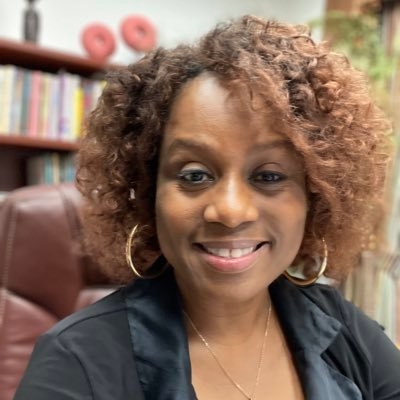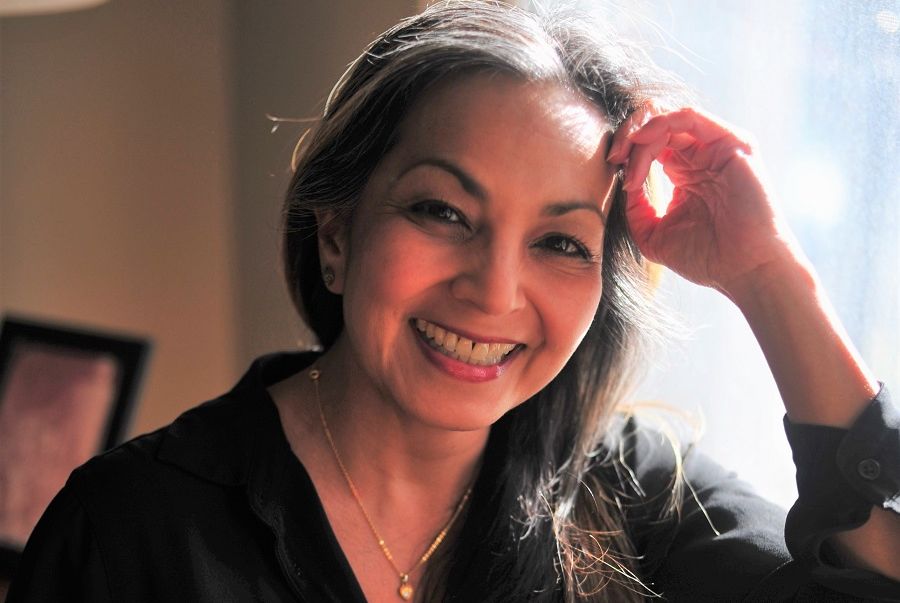The past few weeks of jarring headlines haven’t been easy on anyone in the theatre community, with small and large companies alike experiencing turbulence as they attempt to draw audiences back for in-person programming. While leaders nationwide cite difficulties with business models and audience retention, TCG’s recent THRIVE! Week: Uplifting Theatres of Color virtual gathering (July 11-14), with support from the Doris Duke Foundation, the Sheri & Les Biller Family Foundation, and ALJP Consulting, offered needed stories of hope and innovative practice to sustain Black and Indigenous theatres and theatres of color (BITOC). The four-day convening enabled BIPOC leaders at various companies to discover common ground, build relationships, share knowledge, generate collective action, and cross-pollinate cultural strategy. I entered the virtual sessions distressed and left feeling lighter, with more tools and a sense of community to face this collective crisis.
TCG’s director and assistant director of grantmaking programs, respectively, Emilya Cachapero and Raksak (Big) Kongseng, as well as the Body Language Productions ASL interpreter Brandon Kazen-Maddox became familiar, friendly faces throughout the week. Cachapero kicked off the convening with the resonant sentiment that, while we as BIPOC artists are not a monolith, we find collective strength and alignment in striving for a just and robust theatre ecology. Working across our communities to support one another and share resources was a central theme throughout the week. The opening convocation also included a song from O’ahu-based Hawaiian-language theatre group Ka Hālau Hanakeaka. Then directors Mei Ann Teo, Khanisha Foster, and Alex Meda facilitated a session starting us on a key initiative: the initiation of a BITOC timeline to record the histories of theatre companies in attendance and mark key events/moments of transformation in BIPOC theatre circles, thereby proactively combatting erasure.
From there, early sessions began by recognizing the current realities of change and transition in BITOC as they seek physical spaces and resources, a common experience with distinct challenges for each company. Some theatre collectives in attendance had no permanent physical home, like Houston-based Tee-Zee Productions, while companies like Black Ensemble Theater in Chicago have run their centers several years strong. Some operate out of larger institutions, like Native Voices at L.A.’s Autry Museum. Others, like Alabama’s Birmingham Black Repertory Theatre Collective, are shifting from the 501(c)(3) nonprofit model to an individualized shared leadership model.

Several companies shared that they are constructing new physical spaces and using the capital campaign process as opportunity to expand both education programming and neighborhood resource offerings. Denver-based Su Teatro executive artistic director Tony Garcia reflected on his own experience deepening connections with local legislatures to ensure long-term funding and recognition in the area. “We have to educate the powers that be on the value of our theatre,” Teresa Coleman Wash, founding artistic director of Bishop Arts Theatre Center in Dallas, said in concurrence, adding that they must be shown how prioritizing BITOC can feed the surrounding communities.
Development director Sara Cardona of Teatro Dallas spoke about how elected officials can “leverage art for development.” When advocating for BITOC, she’s confronted them by speaking their language, presenting outcomes around what they’ve previously invested in, aligning with other theatre companies, and making “the constituency the force.”
Across the sessions, attendees observed a lack of trust among various stakeholders throughout the industry: theatre companies and individual contractors, communities of color and theatres, artists and critics, creatives and grant makers, arts leaders and lawmakers. The litany of obstacles to building relationships goes on. Indeed, what Conch Shell Productions founder and producing artistic director Magaly Colimon-Christopher called “the call for collaborative politics” extends to collaboration among all: audiences, artists, workers, leaders, theatre companies, funders, grant makers, and elected officials.
On bringing up interactions with powerful funders, BITOC from all across the U.S. lamented the little funding afforded to organizations of color, while larger, predominantly white companies receive a much more generous largesse. Now is the time to look at the data and realize that “trickle-down theatre economics did not work,” said Carla Stillwell, producer and managing director at the Chicago-based Collaboraction, echoing thoughts from other attendees. “Look at how all of these large organizations have had to close or downsize. It’s your time to invest in midsize theatre companies of color.”
Poetically, Pangea World Theater didn’t just convince many people and powers that their work mattered—they inspired profound generosity from their alliances. Artistic director Dipankar Mukherjee shared a story that had the glimmer of a miracle, as he poignantly described the Minneapolis company’s deep personal contributions to the community in the wake of George Floyd’s murder. Seeking to facilitate communal healing and offer resources, Pangea’s work impacted its neighborhood so strongly that a local church and social justice organization raised the funds to purchase and donate land. Now, the company is preparing to create a “living building” with zero waste, a 200-seat auditorium, commons, and local businesses operating in tandem.
The aching for such deeply community-centered work drew emotive responses and “yes and” contributions. Lauren Turner-Hines, co-founder and chief artistic director of the New Orleans-based Andre Cailloux Performing Arts and Cultural Justice Center, emphasized the latter part of her company name, and posited the question of how, tangibly, our practices and offerings feed “cultural justice.”

Almost as if in response to Seattle grant maker and creative Kathy Hsieh’s demands for a pay paradigm shift earlier in the week, the Day 3 panel “Toward a Resilient Future” featured Solidarity Economy Movement speakers Daniel Park, Seema Sueko, and Marie-Monique Marthol, who laid out specific ways to align practice with ethos. Their offerings included paying people the same hourly rate (i.e., considering time put into a show over hierarchical role status), devising different kinds of currencies for community mutual aid (time, service, food in place of money), forming learning circles, initiating or contributing to community fridges, time banking, and empowering workers to collectively make decisions.
They emphasized the ways that systems are set up to disempower us, in particular because workers are not typically considered “owners” or stakeholders. This can make self-advocacy a risky, even frightening endeavor. As several people typed in the chat, these are the divisive workings of white supremacism. When applied to theatre, Sueko said, the frameworks of Movement Generation and BIPOC ancestors could offer tools to repair and rebuild our structures and relationships in an accessible, holistic way.
While institutions have not always made space for the bodies and ideas present at THRIVE!, and indeed often operated against them, this virtual conference gracefully charted some paths forward and uplifted possible support systems. We might not have all the answers to address our current crisis, nor agree on solutions to our nuanced day-to-day battles. But I am left with generative notes, new friends, and a thought exercise we were asked to consider on our final day:
“For you, what specifics would follow the words I dream…?”
Gabriela Furtado Coutinho is the associate Chicago editor for American Theatre. gcoutinho@tcg.org


